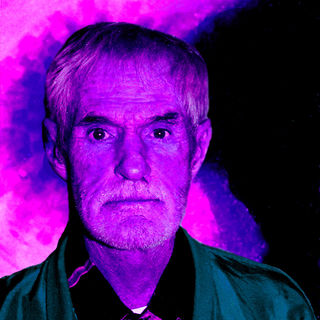Spirituality
Chemical Enlightenment?
Can psychedelic substances bring personal transformation?
Posted March 1, 2017

In the 1960s, there was a popular belief – popularised by psychedelic pioneers like Timothy Leary (pictured) – that drugs such as LSD could provide ‘chemical enlightenment’, a way of circumventing the years of arduous spiritual practice which monks and other spiritual put themselves through in order to attain a permanent higher state of consciousness. Why spend years meditating and practising self-denial when you can just alter your brain chemistry directly, by taking psychedelics? It soon became apparent that this was naive, and that regular LSD usage was much more likely to generate psychological breakdown than spiritual awakening. And many of those – such as Timothy Leary himself – who originally used LSD as a way of expanding consciousness eventually began to use drugs hedonistically, as a way of escaping boredom and discord, after their ‘chemical enlightenment’ project had failed.
Nowadays, psychoactive substances such as Ayahuasca and DMT are widely used with a spiritual intention, as a means of self-exploration and self-expansion. Ayahuasca in particular has a similar status as an ‘elixir of enlightenment’ to LSD in the 1960s.
I don’t think there is any doubt that psychedelics can generate temporary higher states of consciousness (or ‘awakening experiences’, as I prefer to call them). Some writers on mysticism – usually from a religious background – have argued that psychedelic awakening experiences can’t be ‘genuine,’ because they are artificially induced. But this is surely short-sighted and prejudiced. Psychedelic awakening experiences feature many of the same characteristics of other awakening experiences – intensified perception of one’s surroundings, a sense of connection or oneness to the world and revelations about the nature of reality, and so on. I’ve collected many reports of psychedelic-induced awakening experiences which feature these aspects (some of which I quote from in my book Waking From Sleep).
But although psychedelics can bring temporary awakening experiences, I think it’s very unlikely that they can lead to a permanent higher state of consciousness – that is, a state of ‘enlightenment,’ or in my preferred term, ‘wakefulness.’ The reason for this is that psychedelics are basically dissolutive – that is, they achieve their effect by dissolving away our normal mental structures, and putting our normal psychological mechanisms out of action. (I like to use the term 'self-system' for these structures and mechanisms.) When the normal self-system dissolves away, our sense of boundary disappears, so that we no longer experience separateness. Our normal concepts of ourselves and of reality fade away too, so that we feel we’re looking at the world and ourselves in a completely new way. The contents of our subconscious mind may open up into our conscious mind, as the boundary between them fades away as well.
This is fine for temporary awakening experiences, but permanent wakefulness can only occur if there is a new self-system to replace the normal one. It’s not enough to dissolve the sense of self – a new self has to replace it.
This is the major difference between prolonged spiritual practice and psychedelics. Prolonged spiritual practice (such as regular meditation or the following of a path such as the eightfold path of Buddhism, or the eight-limbed path of yoga) will gradually form a new self which will slowly supplant your old self – a self-system with much softer boundaries, a much less powerful sense of individuality and separateness, intensified perception, much reduced associational ‘thought-chatter’ and so on. This self-system may be so subtle and integrated within the whole of our being that you might not even notice that it’s there.
In other words, spiritual practice is basically constructive – it gradually changes the structures of consciousness, re-moulding our self-system into a higher functioning form. But psychedelics don’t facilitate the emergence of a new self-system. With the regular use of psychedelics, the danger is that the structures of the normal self-system will completely dissolve way, and without another self-system to supplant it, there will simply be a psychic vacuum, which equates with a state of psychosis. And unfortunately there have been many cases of this. In fact, you could say that this is really the only permanent psychological change which the regular use of psychedelics can bring: not awakening, but psychosis.
Of course, a person may decide to take psychedelics at the same time as following a spiritual practice, or it may be that the use of psychedelics is simply one element of a wider, more general spiritual path. In that case, it’s less likely that they will be disruptive, and more likely that they will have positive effects. The real danger is of using psychedelics independently, and particularly without any supervision.
There's a further aspect to this though: psychedelics can be transformative in the sense that they can show us an expanded reality, and make us realise that the normal world we perceive is just part of the story. And once we've become aware of this expanded reality, it can change our outlook and our values. It can also awaken an impulse to return to the expanded reality in a more reliable, organic way - that is, through following spiritual practices and paths. This is a topic I'll address in more detail in my next blog.
Steve Taylor is a senior lecturer in psychology at Leeds Beckett University, UK. This article is an excerpt from his book The Leap: The Psychology of Spiritual Awakening. www.stevenmtaylor.com


